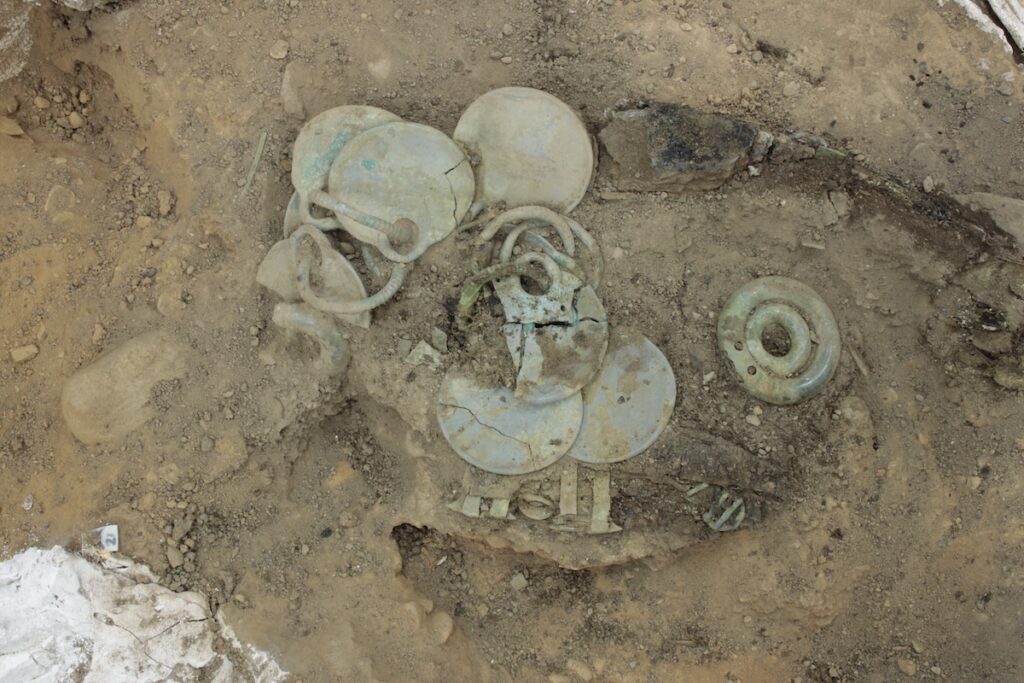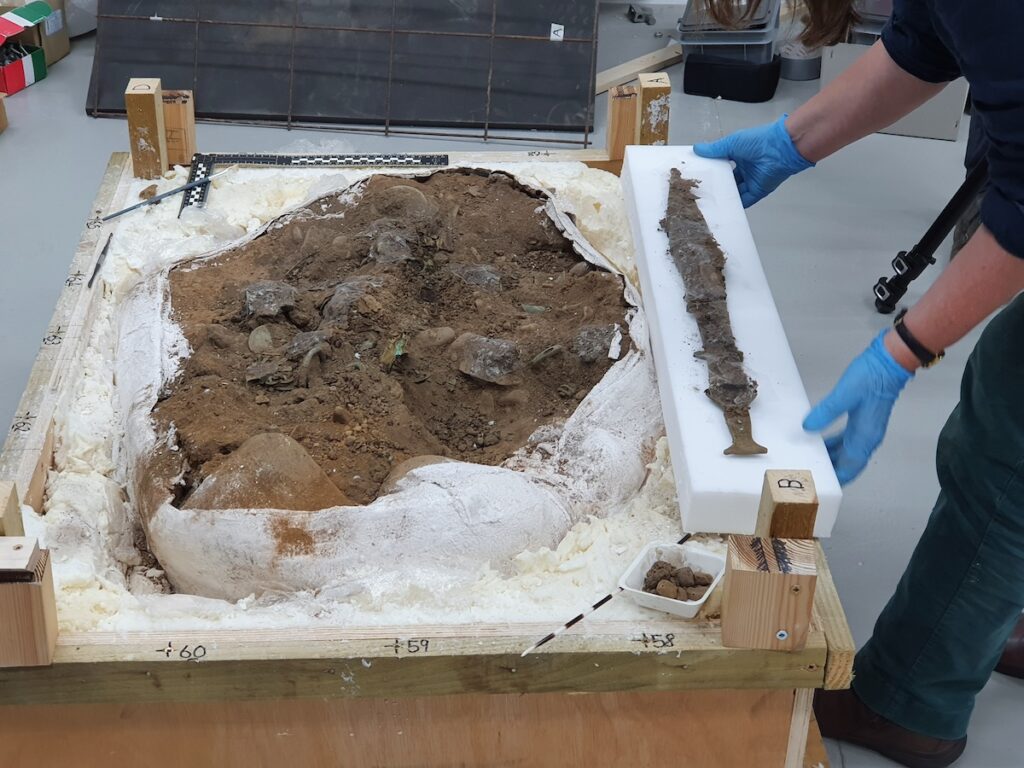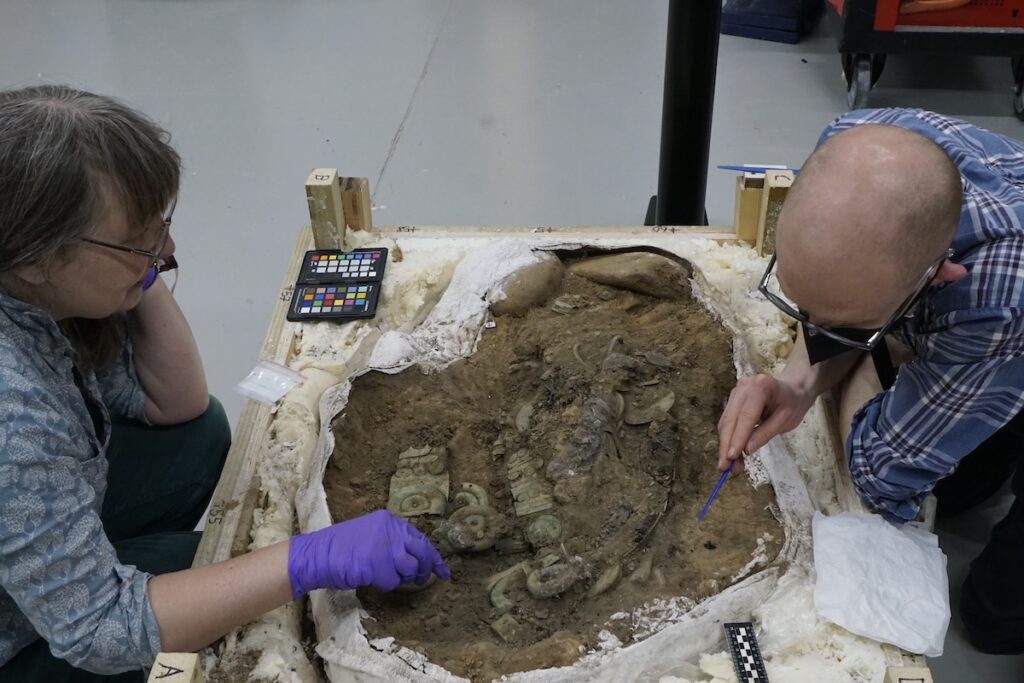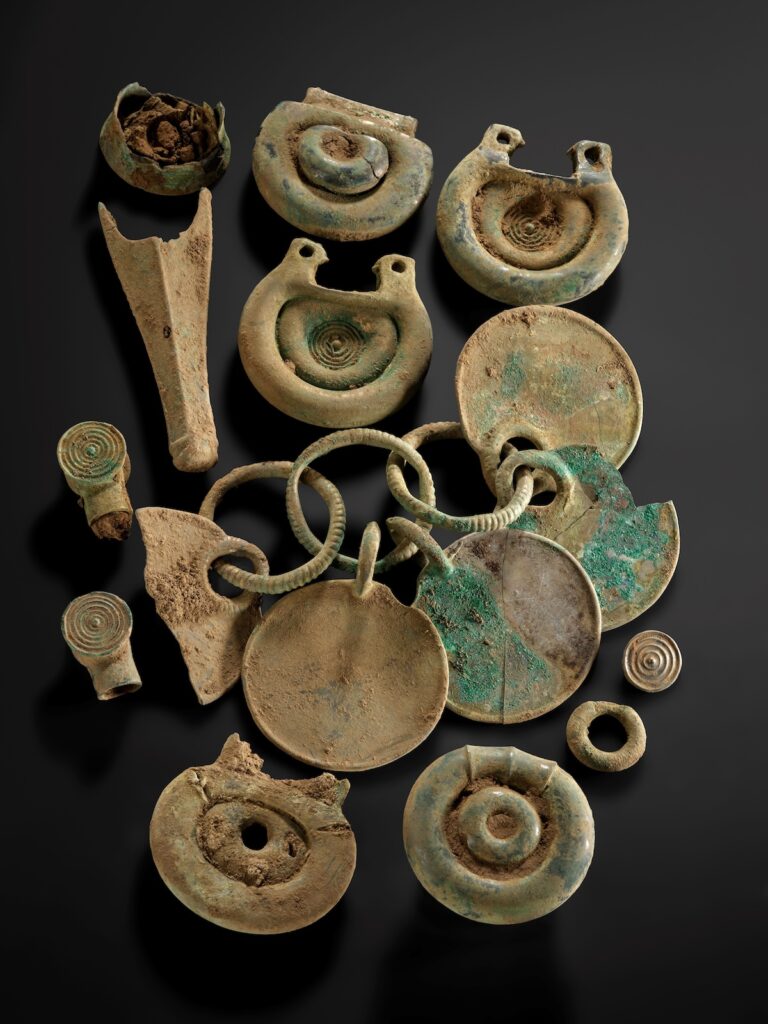The Bronze Age Peebles Hoard now belongs to the nation
The Bronze Age Peebles Hoard is a new find which National Museums Scotland (NMS) say could turn out to be one of the most significant ever discovered here.
It was found in 2020 by a metal detectorist, Mariusz Stępień, and has since been excavated and catalogued. As Treasure Trove it was allocated to NMS. Funding is now required to continue with the research project.
The hoard shows that Bronze Age Scotland was part of an international network of communities in the North Sea area. Two rattle pendants are more commonly found in Denmark, northern Germany and northern Poland. This is the first time any have been found in Scotland.

The collection of items includes a sword still in its wooden scabbard, as well as an array of small bronze buttons looped onto cords. There are rare survivals of minute bronze pins, studs and bosses embedded in wood or leather. The remains of complex decorative straps, the purpose of which remains to be investigated, are preserved still mostly articulated after more than three millennia in the ground. This preservation offers a level of detail and insight not usually glimpsed for the Bronze Age.
Dr Matthew Knight, Senior Curator of Prehistory at National Museums Scotland, said:“The Peebles Hoard is exceptional, an utterly unique discovery that rewrites our understanding of both Bronze Age communities in Scotland and our prehistoric international connections.
“Thanks to the diligence of the finder, expertise of colleagues at the Treasure Trove Unit and National Museums Scotland, and the generosity of the team at the µ-VIS X-ray Imaging Centre, University of Southampton, we have made significant progress. However, more funding is critical to continue our conservation and research, to preserve the hoard for future generations and uncover the stories of Scotland’s ancient past.”
Professor Ian Sinclair, founder of the µ-VIS X-ray Imaging Centre, said: “We are pleased and excited to have worked as part of this multidisciplinary project. CT scanning the hoard was certainly a big challenge due to the scale of the hoard block, but we relished the opportunity to bring our engineering skills to successfully support this research on such an exceptional historical find.”


